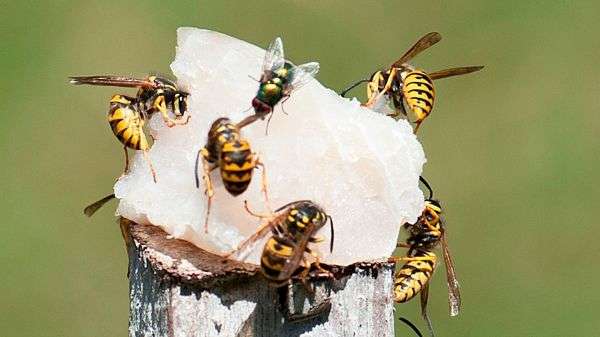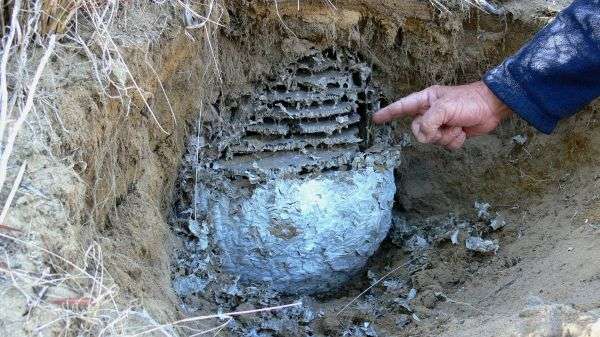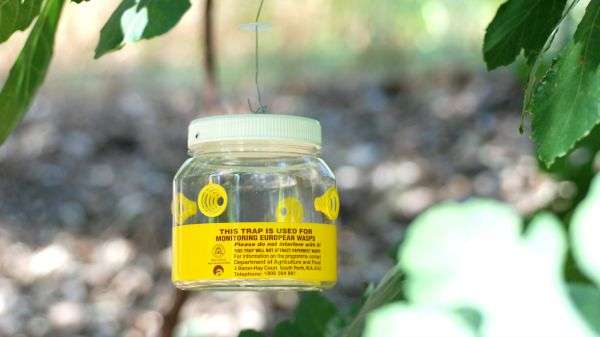European wasps gather strength in Kalgoorlie

The invasive European wasp (Vespula germanica) may be getting a foothold in Kalgoorlie-Boulder as increasing numbers of the pest's nests are found in the area.
Four nests have been found and destroyed in Kalgoorlie-Boulder in the last six months—a sharp increase compared to the 12 nests found in the region during the last 20 years.
Department of Agriculture and Food WA senior technical officer Marc Widmer says the increase may be because a nest might have been missed from the previous year.
"High fences and big dogs in Kalgoorlie-Boulder have made it more difficult to search for and find all the nests," Mr Widmer says.
"There may be as many as five undetected nests in the city. Our trapping and surveillance program led us to the four nests that were destroyed, but we suspect there may be more as wasps were later seen foraging in four distinct areas.
"Because Australia does not have a winter cold enough to kill off the infestations, we can get polygynous, or multi-queened nests that end up as super colonies each with as many as 20,000 wasps".
Mr Widmer says considering each nest can produce multiple fertile queens just one nest can result in large numbers of active nests the following season.
European wasps, also known as yellowjackets, arrive in WA from New Zealand and the eastern states in freight and cargo.

European wasps can make outdoor activities unpleasant and even dangerous with super colonies posing a significant threat to humans as wasps can sting repeatedly without dying.
They can also destroy or seriously affect up to 10 per cent of beehives in an area, by stealing honey and larvae.
European wasps, when established, become economic pests damaging fruit and vegetable crops by piercing the skin thus reducing harvests as well as stinging pickers.
"They have caused significant damage in some Tasmanian vineyards with one grower recording losses of up to six tonnes," Mr Widmer says.

He says the department has a surveillance trapping program comprising more than a thousand traps in WA to detect nests.
Mr Widmer says community members can help combat the pest by taking part in the Adopt-a-Trap scheme and by reporting wasp sightings to the Pest and Disease Information Service on free call 1800 084 881.
He says the public should not try to destroy the nests themselves.
Provided by Science Network WA





















